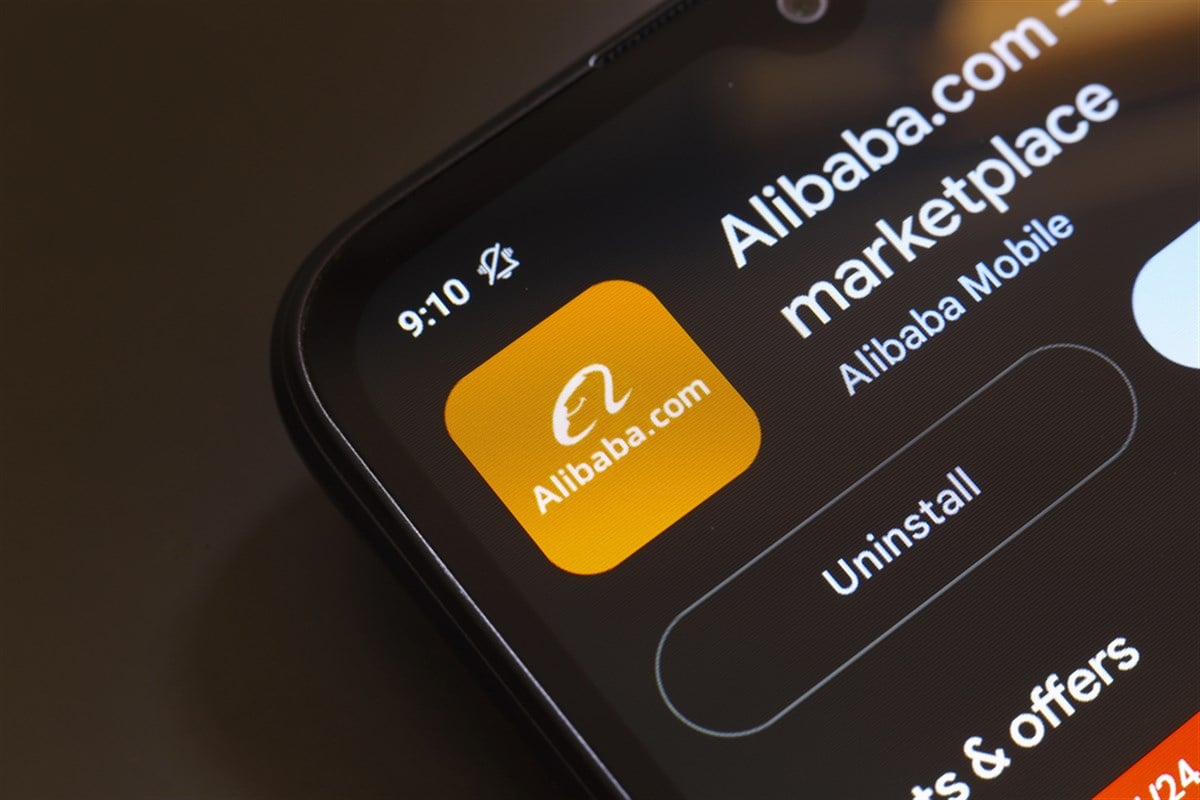
The stock market is often filled with noise and misleading signals that can lead investors to take risks based on shaky assumptions. But occasionally, a signal provides an early warning, giving attentive investors a chance to act before opportunities become widely recognized and priced in.
When the biggest players in the industry decide to take on a view, investors can reverse engineer some of the reasoning behind these decisions, and land themselves with a great deal of upside on their hands to be placed in their portfolios for a much brighter future. Today, there’s one such signal coming out of allocators at BlackRock, the world’s largest asset manager, who doesn’t take any single investment lightly.
After hundreds of hours of due diligence and analysis, these “masters of the universe” decided to accumulate a very sizeable position in an unlikely name. Shares of Alibaba Group (NYSE: BABA) turned out to be the best these analysts and investors had on their plates. While some may be wary of investing in Chinese stocks during the peak uncertainty of trade tariffs rolled out by President Trump, there is still some merit behind this decision.
The Best Risk-to-Reward Pickers Out There
Success in the investment world comes from one main factor: backing ideas that carry a fantastic risk-to-reward setup. This way, losses (which are inevitable in this business) are kept very small and insignificant, while the winnings can make a decent change in a portfolio’s quarter and year, and that is something investors should emulate in their own journey.
Becoming as big as BlackRock requires a lot of that, as well as picking the best setups and risk-to-reward ratios in every company they decide to invest in. There are plenty of reasons to believe Alibaba is one of them. First and foremost, the stock now trades at 85% of its 52-week high level, which might not sound like a screaming deal today.
That is, until investors realize that this price is still only a fraction of the company’s all-time high of just over $315 per share, which was made during the peak uncertainty of the COVID-19 pandemic. Today’s world (despite tariffs) is arguably much better than it was back in those years.
This is why BlackRock might be looking to take advantage of the fact that trade talks between the United States and China are now moving in the right direction. Over the weekend, the two nations agreed to significantly lower their tariffs for up to a 90-day period, sending the S&P 500 higher by up to 3%.
This also might clear the way for capital to start moving back into Asia’s powerhouse, where blue-chip stocks in the technology sector like Alibaba will be the first to see the benefits, something investors can already see in the reaction coming right after the announcement, with Alibaba rallying by as much as 6% in a single day.
What’s The Sentiment for Alibaba Today?
Asking Wall Street analysts might be a good start. As of February 2025, when President Trump was starting to float the trade talks, analysts at Benchmark decided to take a bold view, reiterating their Buy rating on Alibaba stock and placing a valuation of up to $190 per share, which they have kept ever since.
This view would call for as much as a 51.2% upside from where the stock trades today, but the optimistic view doesn’t stop there. More recently, as of early April 2025, those from Mizuho reiterated a Strong Buy view on Alibaba, though they didn’t float a valuation for the stock this time.
Even though this outlier view from Benchmark might seem bold, investors need to remember that analysts typically follow the recent stock’s price action, so that by the time Alibaba starts to trend higher, these targets will undoubtedly follow along.
Remembering that analysts saw Alibaba’s potential above $400 per share during the peak momentum in 2021, it isn’t too far-fetched to believe that prices (and ratings) could reach that level under the right circumstances. Some of these circumstances are already on the table, as the 90-day pause has been agreed upon by the two negotiating nations.
As it turns out, BlackRock isn’t alone in this optimistic view for Alibaba’s future. Investors at Goldman Sachs also boosted their holdings in Alibaba as of early May 2025 by as much as 22.6%, bringing their net position to a high of $2 billion today, another sign of confidence coming from one of the most influential firms on Wall Street.
Now comes the cherry on top regarding confirmation, which is how the bears feel about Alibaba stock’s setup today. Over the past month, Alibaba’s short interest declined by as much as 2.6% to signal clear bearish capitulation in the face of this overwhelming risk-to-reward setup that greatly benefits buyers today.
All told, when investors look for reasons why BlackRock and Goldman Sachs decided to buy into Alibaba, there are several, but the primary catalyst down the line is this new agreement between the United States and China, which has a more concrete term layout for investors and analysts to forecast a more certain future ahead for Chinese stocks like Alibaba.
Where Should You Invest $1,000 Right Now?
Before you make your next trade, you'll want to hear this.
MarketBeat keeps track of Wall Street's top-rated and best performing research analysts and the stocks they recommend to their clients on a daily basis.
Our team has identified the five stocks that top analysts are quietly whispering to their clients to buy now before the broader market catches on... and none of the big name stocks were on the list.
They believe these five stocks are the five best companies for investors to buy now...



